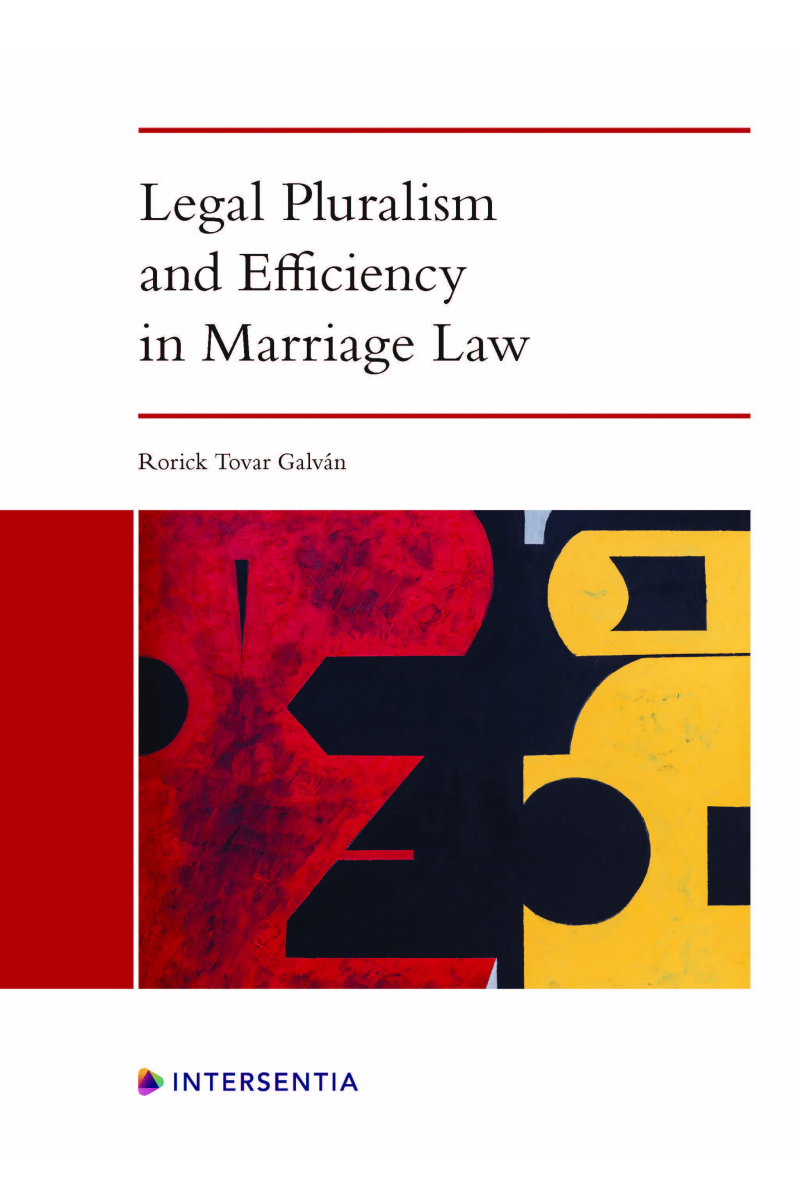 maestro
mastercard
visa
maestro
mastercard
visa

Legal Pluralism and Efficiency in Marriage Law

Based on economic theory, this book offers a novel approach to understanding the marital dynamic, explaining the substantive regulation of marriage and modeling legal outcomes at the conflict of laws level. Marriage law and international marriage law are presented as two sides of the same coin, two separate but complementary areas of the law dealing with different aspects of the relationship, pursuing the same goal: providing a legal framework to encourage continued cooperation between spouses – a positive spiral of repeated non-zero-sum-games – that enable both of them to obtain benefits of various kinds which are difficult or even impossible to achieve separately. On this ground the author proposes specific rules to regulate the party autonomy for the law governing the relationship, and to determine the applicable law in absence of a choice of law agreement for key aspects of the relationship: maintenance obligations, divorce, and property regime.
The book is organized in two parts, preceded by an introductory section, where the results achieved by the harmonization of conflict rules promoted by the EU are examined critically. The EU instruments are used as a mere example to illustrate the problems in terms of unpredictability and inconsistency caused by the current established approach to resolve conflict of laws in marriage law. With this background, the first part puts forward economics as the approach to better comprehend the couple’s expectations of marriage. It focuses on explaining the economic rationale behind marriage, underlining its contractual nature, and demonstrating that common legal remedies as well as several mandatory and default rules in modern marriage law indeed have an economic foundation. The second part is devoted entirely to the conflict of laws dimension of marriage. Here, the costs generated by the legal pluralism, the role of private international law as promoter of cooperative dynamics, the plausibility of the emergence of an authentic regulatory competition between jurisdictions for marriage regulations, the benefits of removing restrictions on party autonomy, and the design of a default rule for the determination of the applicable law are discussed from a law and economics perspective.
The theoretical framework and conclusions arrived at do not depend on specific legal provisions in force in certain jurisdictions. The book will therefore be of interest to scholars and lawmakers attempting to launch reforms anywhere or looking for a practical and novel application of economics in the analysis of the law.
RORICK TOVAR GALVÁN is a Swiss-Peruvian specialist in private international law with extensive expertise in comparative law. After studying law in Peru, he obtained a law degree from the University of the Balearic Islands (Spain), completed an LL.M. degree with honors at the University of Bern, and undertook research stays in the Netherlands and Germany before obtaining his PhD in Switzerland. His doctoral thesis was awarded the distinction summa cum laude by the Faculty of Law at the University of Bern. He has been admitted to practice law in Spain and Switzerland. He currently works as a Research Associate and Lecturer at the University of Bern and as a lawyer in Bern. His research interests concern conflict of laws, economic analysis of law, contract law, and marriage law.
| Type of product | Book |
|---|---|
| Format | Paperback |
| EAN / ISSN | 9781839702297 / 9781839702792 |
| Weight | 560 g |
| Status | Available |
| Number of pages | xxx |
| Access to exercice | No |
| Publisher | Larcier |
| Language | English |
| Publication Date | Jun 17, 2022 |
| Available on Strada Belgique | No |
| Available on Strada Europe | No |
| Available on Strada Luxembourg | No |
Downloads
- Table of contents and preliminary pages
Rorick Tovar Galvan - Introduction: Uncertainty and Inconsistency Surrounding the Determination of the Applicable Law in the EU Instruments on Matrimonial Issues
Rorick Tovar Galvan - PART I. ECONOMICS AS A POINT OF DEPARTURE TO EXPLAIN THE SUBSTANTIVE RULES ON MATRIMONIAL ISSUES
- Chapter 1. Marriage as a Contract and its Economic Function for the Spouses
Rorick Tovar Galvan - Chapter 2. Explaining Enforcement of Promises in Substantive Marriage Law from an Economic Perspective
Rorick Tovar Galvan - Chapter 3. Explaining Mandatory and Default Rules in Substantive Marriage Law from an Economic Perspective
Rorick Tovar Galvan - Chapter 4. Substantive Marriage Law from a Law and Economics Perspective
Rorick Tovar Galvan - PART II. ECONOMICS AS A POINT OF DEPARTURE TO BUILD A SYSTEM OF CONFLICT OF LAWS FOR MATRIMONIAL ISSUES
- Chapter 5. Legal Pluralism and its Costs for Married Couples
Rorick Tovar Galvan - Chapter 6. Regulatory Competition and the Law Market for Matrimonial Issues
Rorick Tovar Galvan - Chapter 7. Advantages of Allowing Free Determination of the Applicable Law to Matrimonial Issues
Rorick Tovar Galvan - Chapter 8. Applicable Law in Absence of a Choice of Law Agreement
Rorick Tovar Galvan - Conclusion: Certainty, Precision, Coherence, and Simplicity in the Determination of the Applicable Law
Rorick Tovar Galvan